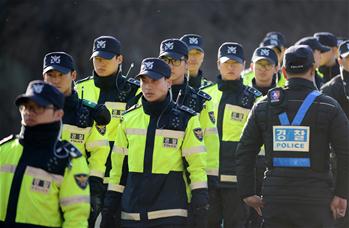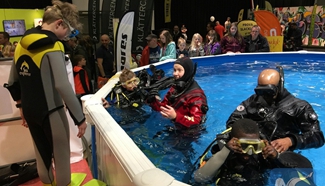SYDNEY, March 15 (Xinhua) -- Non-invasive magnet therapy is being trialled by Australian researchers to slow the development of Alzheimer's disease.
Using a new type of Transcranial Magnetic Stimulation (TMS) called Theta-burst stimulation, researchers from the Monash Alfred Psychiatry Research Centre (MAPrc) have been able to stimulate nerve cells on the surface of the brain.
Kate Hoy, the MAPrc group leader, said that using Theta-burst stimulation allowed a shorter burst of high frequency stimuli to four regions of the brain in three minutes compared to other treatments which took 40 minutes to target one region of the brain.
Hoy said the treatment targeted the build-up of plaque proteins around brain cells which inhibited the ability of those neurons to communicate.
"How well our brain cells talk to each other is what underlies how we think, our information processing and our memory," Hoy told News Limited on Wednesday.
"We're targeting the regions that are affected in this way and trying to increase their ability to talk to each other by strengthening their connections."
Some 100 people with mild to moderate Alzheimer's aged 50-95 years old will participate in the six-week trial.
Jo Duff, a 78-year-old participant whose cognitive scores improved throughout the trail, said that she and those around her noticed a significant difference in her thinking and ability to remember things.
"I was much clearer in my thinking. I could express myself a lot better," Duff said.
"Alzheimer's gives you a foggy feeling in the brain, but that lifted. It felt just like someone tapping my forehead."












